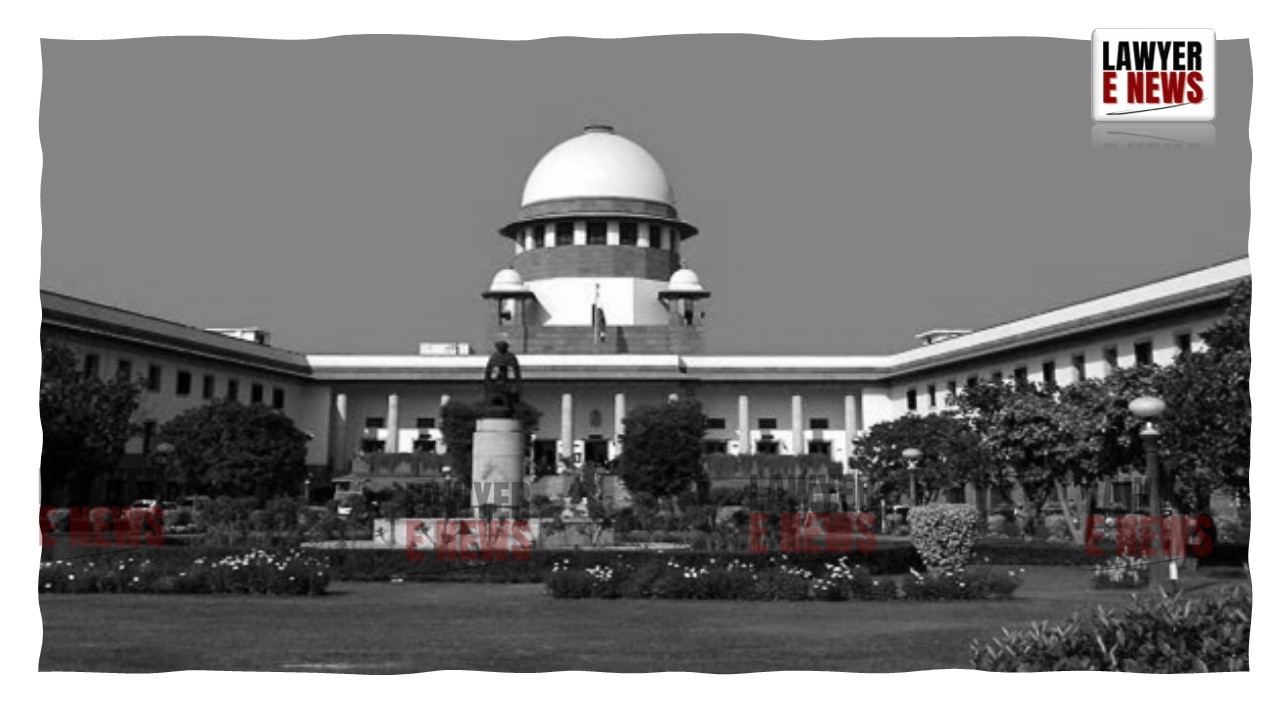-
by sayum
17 February 2026 5:35 AM



Despite Being a 70-Year-Old Law, There is No Effective Implementation: Supreme Court Criticizes Inaction Under Drugs and Magic Remedies Act. Supreme Court of India delivered a significant judgment and condemning the rampant violation and ineffective enforcement of the Drugs and Magic Remedies (Objectionable Advertisements) Act, 1954. The Court underlined the urgent necessity of protecting the unsuspecting public from deceptive advertisements and called out the complete failure of states and enforcement agencies to implement this crucial health law.
“The Act is more than 70 years old, but its implementation is yet to begin in its true letter and spirit”
The Bench, comprising Justice Abhay S. Oka and Justice Ujjal Bhuyan, opened the judgment with a stern observation that the entire machinery meant for enforcing the Act had become defunct. The Court reiterated that the law, which aims to prevent misleading advertisements of drugs and so-called magic remedies, was enacted to save the "ignorant and unwary masses" from being lured into hazardous self-medication and exploitation.
The Court found it shocking that despite the express prohibition of misleading advertisements, a wide range of platforms — including print, electronic media, social media, and even oral announcements — continue to be flooded with false and unscientific claims of curing serious diseases such as cancer, diabetes, infertility, and sexual disorders.
Historical Background and Failure of Enforcement Brought Under Judicial Scrutiny
The Indian Medical Association, the petitioner, placed on record alarming instances of advertisements making miraculous claims without any scientific or medical basis. The Association sought judicial intervention to awaken the dormant regulatory mechanisms of the Centre and States under the 1954 Act.
Previously, on 30th July 2024, the Court had directed the Ministry of AYUSH to establish a digital dashboard to enable States to share and coordinate information on complaints and actions under the Act. However, the Court noted that, even after eight months, several States had failed to comply, and the dashboard remained incomplete. This led to the issuance of strict directions in the present judgment.
Supreme Court Clarifies the Expansive Scope of Prohibition under the 1954 Act
The Court delved into the statutory scheme of the Act and reiterated that its prohibitions are both comprehensive and mandatory. Referring to Section 2, the Court highlighted that the term advertisement is defined broadly to include not only print and television but also oral announcements, digital content, labels, and even notices transmitted by sound or light.
It further noted that Section 3 imposes an absolute ban on advertisements related to certain categories of drugs, particularly those claiming to:
• Procure miscarriage or prevent conception,
• Enhance sexual pleasure,
• Cure or mitigate diseases specified in the Schedule attached to the Act.
In addition, Section 4 prohibits any advertisement that gives a false impression or makes a misleading claim about a drug, while Section 5 bans advertisements promoting so-called magic remedies for treating listed ailments.
The Court remarked, “The prohibition is not restricted to advertisements in newspapers or television alone but applies even to wrappers, labels, notices, oral statements, or any other medium.”
Police and Government Duty to Act Under Criminal Law Reiterated
The Court emphasized that Section 7 makes violation of the Act a cognizable offence, which mandates that the police must register an FIR upon receiving information of any violation. The Court stated unequivocally:
“Since the offence is made cognizable, it is the duty of the officer-in-charge of the police station to register a First Information Report (FIR) on receipt of any information of commission of an offence under Section 7.”
The judgment clarified that this duty is now reinforced under Section 173 of the Bharatiya Nagarik Suraksha Sanhita (BNSS), replacing the earlier provisions of the Code of Criminal Procedure.
States and Union Directed to Establish Full Enforcement and Grievance Redressal Machinery
Taking note of systemic inertia, the Supreme Court directed every State and Union Territory to:
• Appoint adequate numbers of Gazetted Officers under Section 8 of the Act within one month,
• Appoint officers under Rule 3 of the 1955 Rules for scrutinizing advertisements,
• Conduct police sensitization programs through their Police Training Institutes,
• Set up a Grievance Redressal Mechanism allowing the public to lodge complaints via toll-free numbers and email,
• Forward every complaint to the authorized officer, who must, if satisfied, seize the advertisement and immediately initiate criminal action by lodging an FIR.
The Court stressed that public awareness is indispensable. It ordered the National Legal Services Authority (NALSA) and State Legal Services Authorities to actively disseminate information on the Act and its safeguards, especially during their legal aid camps.
“The Dashboard Must Bring Transparency and Enable Cross-State Coordination”
The Court reiterated its earlier directive requiring the Union of India to create a functional dashboard where all States must upload details of complaints received, actions taken, and prosecutions launched under the Act. The Union was granted three months to complete the dashboard development.
Specific Defaulting States Called Out for Non-Compliance
The Court listed the following States and Union Territories as having failed to comply with previous directions: Andaman & Nicobar Islands, Arunachal Pradesh, Dadra & Nagar Haveli and Daman & Diu, Haryana, Himachal Pradesh, Ladakh, Lakshadweep, Madhya Pradesh, Maharashtra, Manipur, Mizoram, Nagaland, Rajasthan, Sikkim, Telangana, Uttarakhand, and Uttar Pradesh.
However, during the hearing, Himachal Pradesh clarified that it had filed the required affidavit, and the Court recalled the direction against it.
All remaining defaulting States were ordered to file compliance affidavits by 30th April 2025, while all other States and the Union of India must report compliance by end of June 2025.
The Court concluded by expressing hope that: “Creation of a grievance redressal mechanism, enforcement of penal provisions, and active public awareness would bring the law to life and protect the masses from falling prey to misleading advertisements and unscientific remedies.”
The matter is now listed for further monitoring on 14th May 2025.
Date of Decision: 26 March 2025
